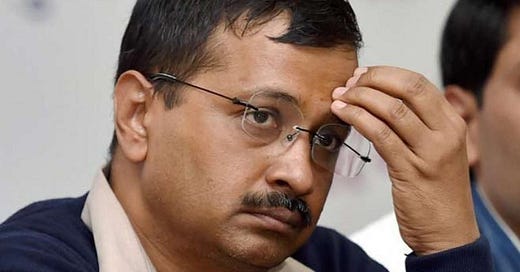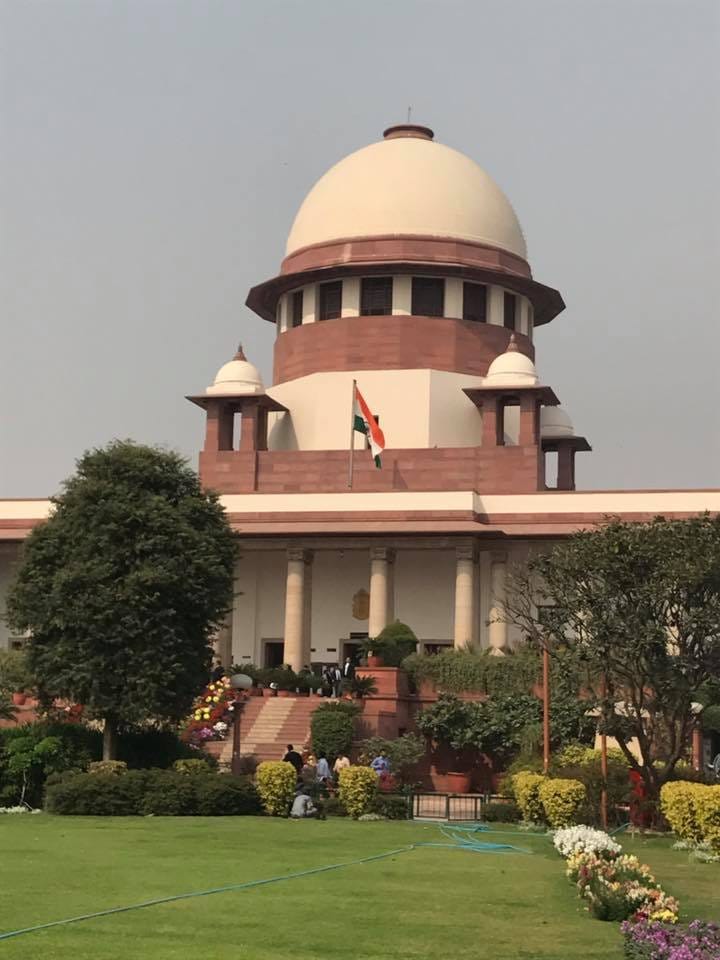Kejriwal in Supreme Court (Part 2): Theatrics and Threshold of Arrest Thoroughly Threshed
Summary of proceedings on April 30, 2024: Hearing commenced at 2 PM, and following a comprehensive hearing of Dr. Singhvi's submissions, the matter was adjourned until Friday for ED's oral arguments.
Supreme Court Continues Hearing of SLP on Legality of Kejriwal's Arrest
Detailed Examination of Legal Grounds
The Supreme Court today continued to hear the Special Leave Petition (SLP) concerning the complex legal issues around the embattled Delhi Chief Minister Arvind Kejriwal's arrest in the Delhi Liquor Policy case. Representing Kejriwal, Senior Advocate Dr. Abhishek Manu Singhvi persistently challenged the legality of his arrest by the Enforcement Directorate (ED), which occurred on March 21, 2024. During the hearing held today, April 30, 2024, which lasted over two hours, the Apex Court posed probing questions regarding the ED's actions and justifications. We had earlier presented the summarized proceedings of yesterday’s hearing.
Supreme Court's Queries Signal Rigorous Review
The Bench comprising Justices Sanjiv Khanna and Dipankar Datta presented five critical queries to the ED, reflecting the Supreme Court's intent to thoroughly examine the procedural and substantive aspects of the case. These questions focused on the necessity of adjudicatory proceedings prior to criminal proceedings, the interpretation of Section 19 of the PMLA in the context of Kejriwal's non-application for bail, and the implications of the time gap in the prosecutorial actions.
Key Questions from the Supreme Court
Adjudicatory vs. Criminal Proceedings: The Court queried whether criminal proceedings could commence without prior adjudicatory proceedings, especially given the absence of any attachment proceedings in respect of Kejriwal.
Comparative Analysis with Manish Sisodia's Case: The Justices asked which part of the judgement in Sisodia's case would apply to Kejriwal, indicating a nuanced interpretation of precedent.
Interpretation of PMLA Arrest and Remand Provisions: The Court verbally discussed the standards required for effecting arrest, the conditions precedent thereto, and remand provisions under the PMLA, emphasizing a balanced evaluation as distinct from determining guilt.
Consequences of Procedural Delays: The discussion highlighted the impact of delays in filing criminal complaints and initiating proceedings by the ED, with a specific focus on the prescribed time limits for the adjudicatory process under Section 8 PMLA.
Timing of Arrest Relative to Elections: The timing of Kejriwal's arrest, just before the general elections, was critically examined, suggesting potential political implications.
Legal Implications and Future Directions
The case has now been adjourned to May 3, 2024, where the ED is expected to respond to these queries, apart from its other arguments. This next session is anticipated to be pivotal in shaping the legal discourse around the arrest and its broader constitutional implications.
Constitutional and Legal Considerations Ahead
While it is premature to speculate upon the outcome of Kejriwal's petition, the Bench clearly intends to address significant constitutional questions concerning the harmonious interpretation of the statutory scheme of the PMLA, 2002, especially in respect of arrest, attachment of the “proceeds of crime” as well as the filing of the criminal complaint(s) in the jurisdictional Special PMLA Court. This examination is particularly relevant in light of the Apex Court rulings in the cases of Vijay Madanlal Chaudhary and Pankaj Bansal. The considerations will focus on individual liberty and the due process of law as enshrined in Articles 20 and 21 of the Constitution. This approach emphasizes the Supreme Court's commitment to ensuring that legal proceedings adhere to statutory mandates while aligning with constitutional values, thus safeguarding individual rights against procedural overreach, in a scenario where serious offences of corruption and money-laundering have been alleged by public servant, holding high public offices.
To our readers we promise, we shall keep you updated.






